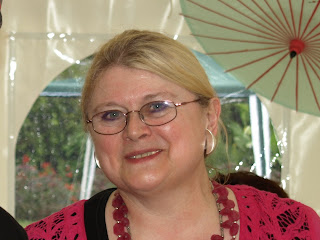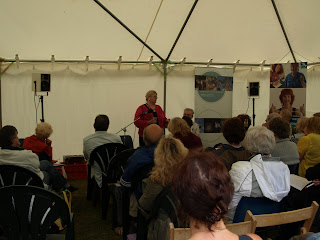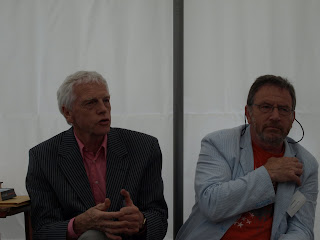Jurgen is a well-known motivational coach and writer and author of several books, including 'My Writing Coach.' I recently received an email from Jurgen telling me about his latest project. He was looking for 30 people to take part in his 60-Day Breakthrough Challenge, with Jurgen providing all the motivational tools (free of charge) to enable his students to achieve their own pre-set goal over the two-month period.
Frankly, who wouldn't want in? Jurgen informed me this morning, that unfortunately he received my application too late for it to be considered. But he did suggest I go ahead with my goal anyway and he gave me some key tips to get me up and running, which I will share with you. Over to Jurgen:
THREE KEYS TO SUCCESS IN ACHIEVING YOUR GOAL
1: Have confidence that you can do it.
The best attitude to have regarding your goal is “I know I’m going to reach my goal. Now my job is to find out the easiest, fastest way to do it.”
I’m not saying that in some Pollyanna-ish way. Presumably you have chosen a goal that is reasonable and achievable. I’m guessing that many people have done it before, in a similar time frame if not faster. Why shouldn’t you? The only thing that may be missing is knowing how to do it, and then committing the time and energy to complete those tasks.
In my case, millions of people have dropped 3% body fat, organized their offices and kept them organized, and probably hundreds of thousands have created useful information products. I can’t think of any reason why I can’t do it, too.
With more lofty goals you may be challenging yourself against the very best and an element of realism can be useful. Lots of people have run the four-minute mile, but I can think of several good reasons why that wouldn’t be a realistic goal for me (age, genetics, not enjoying running…). Similarly, while I’d love to win the Pulitzer Prize for Literature, that wouldn’t be a good goal to set—aside from any modesty about my writing prowess, it’s a goal that is entirely in the hands of a small number of other people, the committee that chooses the winners. But getting my novel published? How many hundreds of thousands achieve that in even one year? Enough to make me confident that I can do it, too (especially if I have a Plan B of self-publishing…).
So if you have chosen a goal that is reasonable, now is the time to stop devoting any energy to concerns over whether you can do it and put that power into finding the best way to do it.
2: Be flexible.
When people try something and fail, they remember what they were taught as children, “If at first you don’t succeed, try, try again.”
So they try the same thing again.
And again.
It still doesn’t work and they give up.
I wish we could teach children, “If it first you don’t succeed, do something different!” That should be your mantra throughout these sixty days (and beyond). When you encounter a wall you can’t get over, figure out how to go under it, through it, or around it. There is always a way.
3: Take advice from people who have done it
I’m not suggesting that only a coach who has won a gold medal can help someone else win a gold medal but for sure the best coaches have a solid knowledge of the event, probably have participated, and add to their experience a way of giving valuable feedback. Yet often we ask our friends or relatives what they think of our goal and get discouraged if they react negatively—which they will do much of the time. If you want to prove this to yourself, try this experiment: mention your goal to a random selection of ten people over the course of the week. I’m willing to bet that you will get mostly one of these responses:
“Really? Isn’t that awfully difficult in today’s climate?” (or “if you’ve never done it before,” or “unless you know the right people,” or…)
“Oh, interesting, that’s great.” (In a tone that might as well be accompanied by a pat on the head, followed quickly by their latest bit of news.)
“Good luck—I tried that (or something similar) and it just didn’t work out.” Or “I’d love to do that, too, if I had the time…” The implication being that either you’re doomed to failure or that you’re undertaking something anybody could do if they could spare an hour or two. Both are de-motivating.
It seems easy to laugh off or ignore this kind of negativity but actually it’s insidious. It plants seeds of doubt that in time can undermine you. The moral is to keep your own counsel and discuss your goals only with people who you know will be supportive and those who actually have (successful) experience of what you are trying to do.
If you follow these three guidelines, you hugely increase your chances of success.
Well, I don't know about you, but I'm feeling energised and up for this challenge. It’s a well-known fact that we are more likely to achieve our goals when we write them down. Not committing our plans and ideas to paper is a form of judging them not to be good enough. And when we tell others what they are, apparently we have an even greater chance of turning our goals into reality. So here goes.
My 60-day challenge is going to be . . . (drum-roll please) . . .
Write and sell a TV screenplay.
It's something I’ve never attempted before. I’m pretty sure I can get the thing written, but selling it as well, that’s a whole different ball game. Maybe I’m aiming too high – who knows?
So far I’ve come up with a premise and a working title, and that’s about it.
And I’ll be recording my progress right here every couple of days or so. So why not join me? If there’s something you’ve been wanting to do for a while now, don’t put it off any longer. Stop thinking about it and start doing. Commit some time and energy to your project today. And we’ll kick the whole thing off officially on Saturday August 1st.
And please do write to me here at the Treehouse. Or you can email me: kazjordyn@yahoo.co.uk and let me know what your Breakthrough Challenge is going to be for the next 60 days, because I’d love to feature your stories on this blog. Come on guys, we’ll crack this thing together.
Best, Kaz






